Hypoglycemia | Risk Factor for People with Diabetes| Deep look👀
Hello friends of Steemit, Today as every day I come to talk about a very important topic and maybe all of us have had a family member or someone who has been through this. Today's topic will be dedicated to Hypoglycemia.
Acute complications, including hypoglycaemia, are among the main reasons for hospital admission. Feeling of hunger, headache, weakness, dizziness, irritability, confusion, sweating and tachycardia may be signs of low blood glucose. Hypoglycaemia is a frequent acute complication in diabetic patients, it is important to know it in order to know how to identify it in time and avoid complications. The patient and family members should be trained in the early identification of hypoglycemia.
Below I will explain why I would like to tell you about it.
Let's start with the first.
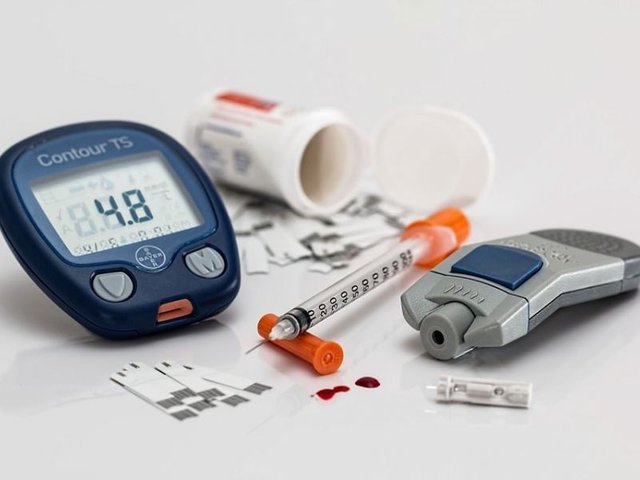
What is hypoglycemia?
To make a deficion more accurate and easier to understand. Hypoglycaemia (not to be confused with its antonym, hyperglycemia) is the decrease in blood sugar, with levels below 60 mg / dl (milligrams per deciliter). In the blood, sugar or glucose circulate continuously, this provides the cells of our body with the energy necessary to carry out activities. The source from which we obtain this sugar is the food, which upon entering the organism is processed and converted into glucose, which is then carried by the blood.
Sugar is especially sensitive in the brain, which is the first to detect low blood sugar, which requires all the time to function properly and that our thoughts and orders it sends to our body. The brain begins to suffer deterioration in its function from amounts less than 50 milligrams per deciliter of blood glucose.
What causes it
Although medication is the main factor involved in hypoglycemia in people with diabetes, other factors may increase the risk of hypoglycaemia
One of the main causes is the management of medications for the treatment of diabetes, such as oral hypoglycemic agents and insulin. The desired effect of these medications is to lower blood glucose, but in some cases, glucose may fall more than desired, we call this a side effect
Hypoglycemia can be due to various causes.
In healthy people it is usually the result of a very long fast because the body continues to use glucose, once glycogen is no longer in the liver to produce it. An intense exercise accompanied by little previous intake can cause hypoglycemia. In people suffering from diabetes mellitus is very common. In this case, it is usually due to a failure in the administration of exogenous insulin or oral anti-diabetic medication. If given when you have not eaten enough, glucose levels can go down to produce severe hypoglycaemia. In this type of patients can also be produced by an excess of exercise coupled with a poor intake of food since physical activity promotes the use of glucose by tissues.
It must be monitored especially in children under 6 years, as it can impair brain development.
Now let's go to the symptoms
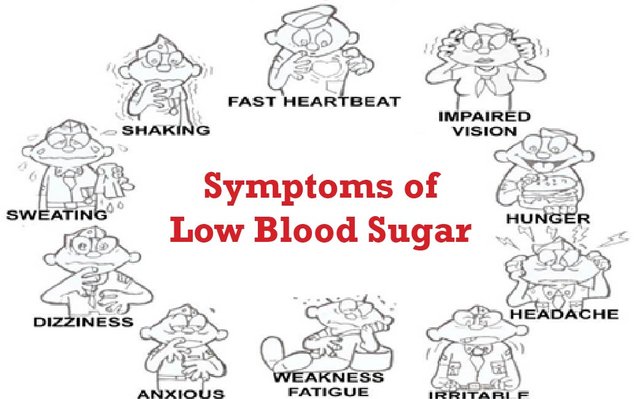
- Instability
- Nervousness or anxiety
- Sweating, chills and clamminess
- Irritability or impatience
- Confusion, including delirium
- Fast / fast beats
- Fading or dizziness
- Hunger and nausea
- Drowsiness
- Blurred / damaged vision
- Tingling or numbness in the lips or tongue
- Headaches
- Weakness or fatigue
- Anger, stubbornness or sadness
- Lack of coordination
- Nightmares or screaming during sleep
It is very important to memorize the symptoms to recognize them if we are diabetic or if we have a family member who has diabetes. Although it is not a situation that affects only the diabetic patient, they are more frequently vulnerable because of the hypoglycaemic medications.
In those cases of diabetic patients who are also managed by hypertension or angina with beta-blocking drugs (propranolol, nadolol, timolol, carvedilol, labetalol and others), it is important to be especially careful, as the symptoms may be more diffuse or pass Without being recognized until you encounter a more noticeable mental confusion problem, if you receive these medications you should consult with your doctor about how to detect the symptoms of hypoglycemia, and be disciplined in your feeding schedules and medications.
Treatments
For "insulin shock", the treatment of choice would be the immediate administration of glucose or glucagon.
Eliminating insulinoma by surgery is undoubtedly the treatment of choice, since in many cases enucleation of the tumor can be performed; but in another quite considerable percentage, a hemipancreatectomy should be performed. In those cases in which the surgery is not possible or the symptoms reappear, medical treatment must be resorted to, which will also be applied during the period in which the morphology of the tumor is studied; Not so when functional studies are practiced, since most of the drugs used are based on the inhibition of insulin synthesis, its endogenous secretion, or both.
This is one of the most used recommendations but as long as you have been consulted with your doctor.
- Consume 15-20 grams of glucose or simple carbohydrates
- Check your blood glucose again after 15 minutes
- If the hypoglycemia continues, repeat.
- Once your blood glucose returns to normal, consume a small snack if your next planned meal or snack is more than one or two hours away.
Good news for the little ones in the house
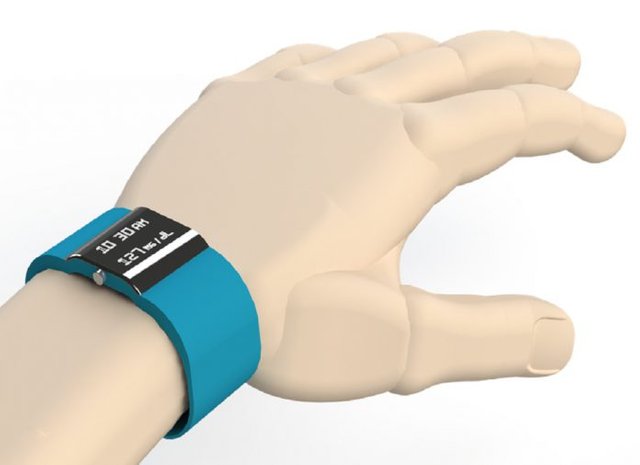
A system has been developed to measure in real time the level of blood sugar in children and is also able to alert to possible hypo or hyperglycemia, has been designed by Celia Gómez Jiménez, a student of the degree in Telecommunications Technology Engineering in the University of Navarra.
It consists of a sensor and an intelligent bracelet. And in the development also works his brother, Eduardo, recently graduated in Medicine from the University of the Basque Country. It has the collaboration of two researchers from the UPNA: Israel Arnedo Gil, professor of the Department of Electrical and Electronics Engineering, and Jon Mikel Percal Ciriza, doctoral student.
This wireless system for continuous glucose measurement is capable of alerting the patient of possible hypoglycaemia or hyperglycemia in a matter of seconds and in a non-invasive way, explains Gómez.
The sensor is located in the ear and works like a radar that detects the anomalies of the blood glucose. By making the measurement continuously, it is possible to configure the device to establish how often you want to receive the alerts.
I invite you to continue reading
https://www.el-carabobeno.com/disenan-una-pulsera-inteligente-mide-la-glucosa-ninos-tiempo-real/Conclusion
As it could be observed in this investigation, hypoglycemia or low blood sugar are symptoms that are easy to detect and remedy at first. It is vital that the diabetic patient and his relatives know the symptoms to be able to attack them at a given moment. If the patient presents alterations in the state of consciousness, it should be treated in an emergency service.
For those who have the doubt that it is insulin, here is a brief concept.
Insulin is a hormone that helps the body pass glucose (sugar) from the blood to muscles or fat, where it is stored for later use when energy is needed.
Next, I'll leave you a more concrete video and several references in case you have more questions
Ref Information
- Cornblath M, Schwartz R, Aynsley-Green A, Lloyd JK (1990). "Hypoglycemia in infancy: the need for a rational definition. A Ciba Foundation discussion meeting". Pediatrics.
- Bolli GB, De Feo P, De Cosmo S, Perriello G, Ventura MM, Massi-Benedetti M, Santeusanio F, Gerich JE, Brunetti P (1 August 1984). "A reliable and reproducible test for adequate glucose counterregulation in type 1 diabetes"
- "Diabetes and Hypoglycemia". Diabetes.co.uk. Archivedfrom the original on 13 March 2012. Retrieved 10 March 2012
- Ref 1
- Ref 2
- Ref 3
- Ref 4
- Ref 5
Thank you for taking the time to read this publication. I hope you have a happy day, see you in the next. Do not forget to leave a comment about what you thought, thank you very much.@juanjdiaz89


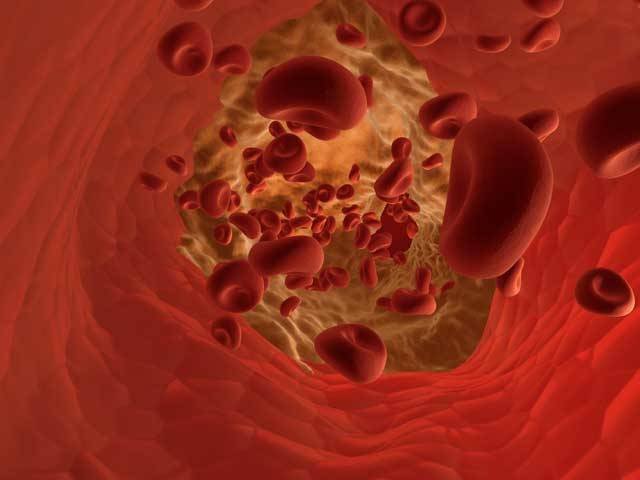
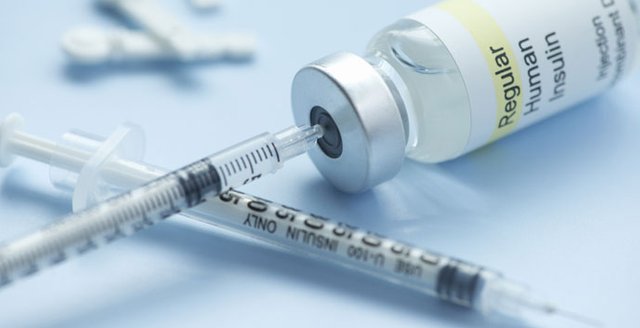
Thx for support, I'll keep improving
Thank you for this good information about Hypoglycemia. But sometimes those symptoms are not happening to the patient who have Diabetes.
You replied to the steemstem-bot, not the post
Would be nice if you had said more about that bracelet device. It sounds interesting.
Yeh ikr? lol that part of the article really caught my attention . Its so fascinating how far we have advanced in tht world of medicine .
As a physician, I would say that this is a very good , a very simplistic explanation of the issue for general population that deals with it. I have struggled to write about these things in a way that a lay person can understand the problem. I end up writing something that a professional can understand. How to do this in layman’s terms is very well exhibited here. I enjoyed it.
Thank you for bringing more attention to these topics! Blood sugar control needs more attention with the rise of diabetes. Followed you @juanjdiaz89!
If exactly and as this topic there are many that I hope to continue explaining. Thanks for reading, I also follow you
It is really simple and informative post.Thanks for such a awesome view on hypoglycemia..
Yes, you must be simple so that the information can reach everyone and they can understand it. Thanks for your comment
I have symptoms of insomnia, shortness of breath and frequent headaches .. is it a sign of diabetes? when I have quit smoking @juanjdiaz89
Have you presented this type of symptoms before? How often ? I recommend that you go to your trusted doctor and do some check-ups since giving you a pathology through this means is complicated.
good post, I like your post ..
I need your support please visit my blog https://steemit.com/@muliadi
if you like my post please give upvote, resteem &follow me.
thank you, keep on steemit.
excellent post my brother I hope you continue like this
thanks for reading, bro
post is very useful, so I know more about this disease, and how to overcome it, thank you for sharing my friends
Thanks to you for taking the time to read this post, I like that you liked it
very insteresting information. Thanks for sharing
thank you very much for taking the time to read